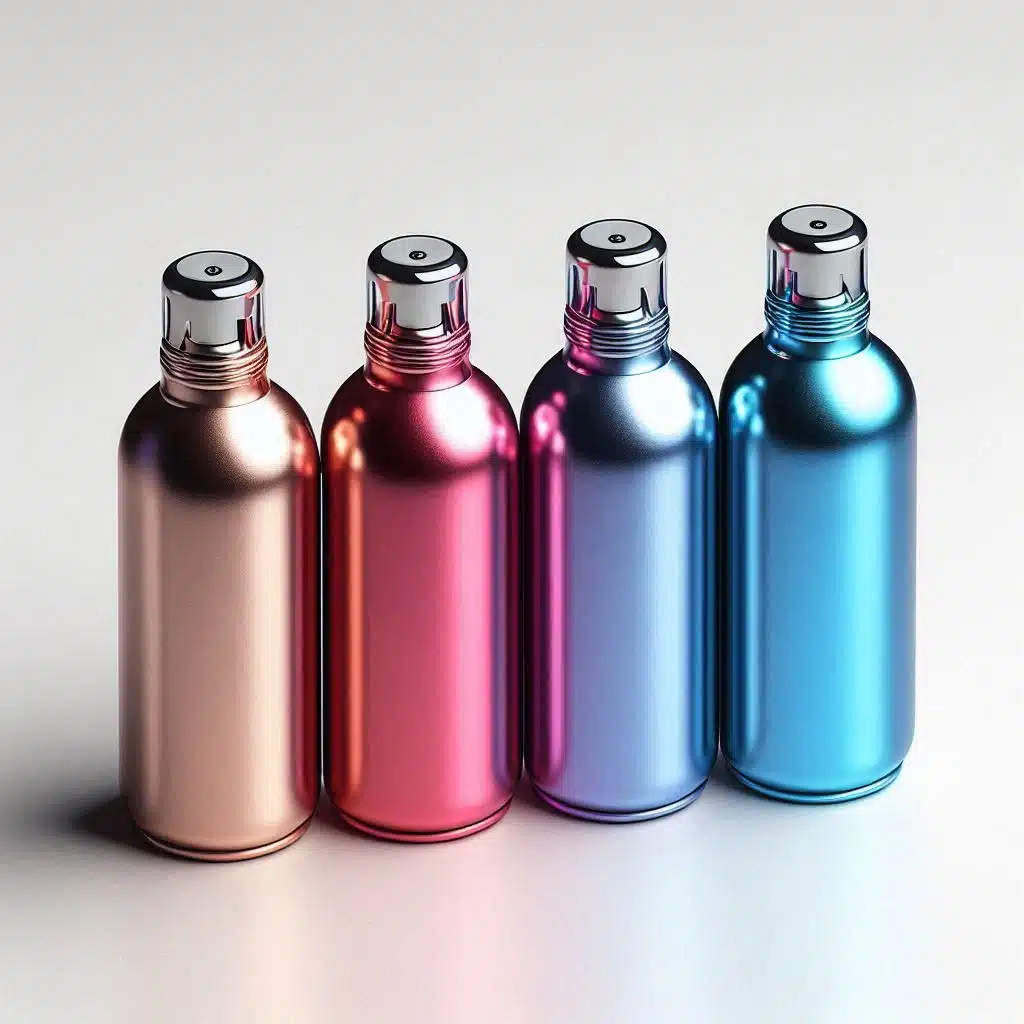Cream chargers are versatile tools primarily known for their culinary applications, but they also play significant roles in medical and industrial fields. Their widespread use is attributed to the nitrous oxide (N₂O) they contain, which has various practical and beneficial properties.
Legal Uses and Availability
1. Culinary Use
Whipped Cream Dispensers: Nitrous oxide is legally available for culinary purposes, prominently in the form of whipped cream chargers. These small, pressurized canisters are used to create whipped cream, foams, and other culinary infusions. Home cooks and professional chefs alike rely on them to add volume and texture to dishes.
Age Restriction: To prevent misuse, retailers are required to ensure that buyers are at least 18 years old. This age restriction helps curb underage access and potential recreational misuse of nitrous oxide.
2. Medical Use
Anesthetic Use: Nitrous oxide is widely used in medical and dental settings as an anesthetic. It is commonly known as “laughing gas” and is used for pain relief and sedation during procedures. Medical professionals can obtain medical-grade nitrous oxide through controlled channels, ensuring it is used safely and appropriately.
Controlled Access: Medical-grade nitrous oxide is distributed under strict regulations to prevent misuse. Only licensed medical and dental practitioners can purchase and administer it, ensuring its application is limited to legitimate clinical settings.
3. Industrial Use
Manufacturing and Food Production: Nitrous oxide plays a role in various industrial processes. It serves as a propellant in aerosol products and is utilized for extracting oils and fats in food production. Its versatility in these industries highlights its importance beyond culinary and medical uses.
Automotive Applications: In the automotive industry, nitrous oxide is used to enhance engine performance, particularly in racing. It provides a significant boost in power by increasing the oxygen available during combustion, making it a popular choice for performance enthusiasts.
Price Drop! Fast Gas 670g – Now £20.98
Recent Legal Changes
1. Reclassification as a Class C Drug
Misuse of Drugs Act 1971: As of 8 November 2023, nitrous oxide has been reclassified as a Class C drug under the Misuse of Drugs Act 1971. This reclassification was implemented to address the growing misuse of nitrous oxide as a recreational drug. The classification places it in the same category as substances with recognized potential for misuse and harm but lower risk compared to Class A and B drugs.
Psychoactive Substances Act 2016: Before its reclassification under the Misuse of Drugs Act, nitrous oxide was controlled under the Psychoactive Substances Act 2016. This act made it illegal to supply substances intended for their psychoactive effects. The reclassification aims to further strengthen the legal framework around nitrous oxide and curb its recreational use.
2. Restrictions on Sale and Possession
Supply and Possession: It is illegal to supply, import, export, or produce nitrous oxide for recreational purposes. Possession with intent to supply for psychoactive effects is also illegal. These restrictions are enforced to prevent the substance from being misused and to protect public health.
Legitimate Use Exemptions: Despite these restrictions, individuals and businesses can still legally purchase and use nitrous oxide for legitimate purposes, such as culinary, medical, and industrial applications. However, any suspicion of misuse can result in legal consequences, including fines and imprisonment.
Protecting Against Misuse
1. Retailer Responsibilities
Age Verification: Retailers must verify the age of purchasers to ensure compliance with the legal age restriction. This step is crucial in preventing underage individuals from accessing nitrous oxide.
Monitoring Sales: Retailers should be vigilant in monitoring sales for signs of potential misuse. Unusually large purchases or frequent buying patterns can indicate possible recreational use. Retailers have a responsibility to report suspicious activity to the authorities.
Customer Education: Educating customers about the legal uses and potential risks associated with nitrous oxide is essential. Providing information on the appropriate and safe use of the substance can help prevent misuse and ensure compliance with regulations.
2. Consumer Awareness
Understanding Risks: Consumers should be aware of the risks associated with inhaling nitrous oxide for recreational purposes. Potential health hazards include oxygen deprivation (hypoxia), neurological damage, and even death. Awareness of these risks can deter individuals from misusing the substance.
Complying with Laws: It is crucial for consumers to use nitrous oxide strictly for its intended legal purposes. Adhering to all regulations and guidelines ensures the safe and lawful use of the substance. Failure to comply with the laws can result in severe legal consequences.
Nitrous oxide remains available for purchase in the UK for legitimate purposes, including culinary, medical, and industrial applications. However, its sale and use are subject to strict regulations to prevent misuse. The reclassification of nitrous oxide as a Class C drug under the Misuse of Drugs Act 1971 underscores the government’s commitment to addressing its recreational misuse and protecting public health.

£27.50 Original price was: £27.50.£21.50Current price is: £21.50. inc. VAT

£26.95 Original price was: £26.95.£20.60Current price is: £20.60. inc. VAT

£23.95 Original price was: £23.95.£19.99Current price is: £19.99. inc. VAT

£29.95 Original price was: £29.95.£19.95Current price is: £19.95. inc. VAT

£77.95 Original price was: £77.95.£67.95Current price is: £67.95. inc. VAT

£27.95 Original price was: £27.95.£20.90Current price is: £20.90. inc. VAT

£24.90 Original price was: £24.90.£19.50Current price is: £19.50. inc. VAT

£36.95 Original price was: £36.95.£26.95Current price is: £26.95. inc. VAT

£24.95 Original price was: £24.95.£20.50Current price is: £20.50. inc. VAT

£35.00 Original price was: £35.00.£27.95Current price is: £27.95. inc. VAT
Retailers play a critical role in preventing misuse by verifying the age of purchasers, monitoring sales, and educating customers about the legal uses and risks associated with nitrous oxide. Consumers, on the other hand, must use the substance responsibly and in compliance with all regulations to avoid legal consequences and potential health risks.
For those requiring further legal advice or assistance, consulting with a legal professional is recommended to navigate the complex regulatory landscape surrounding nitrous oxide in the UK. By adhering to the laws and promoting responsible use, both retailers and consumers can contribute to the safe and legal utilization of nitrous oxide, ensuring its benefits are enjoyed without compromising public health and safety.
Future Developments and Implications
The reclassification of nitrous oxide as a Class C drug and the associated regulations reflect an evolving approach to controlling substances with potential for misuse. This shift has several implications for various stakeholders, including regulatory bodies, businesses, and consumers.
1. Enhanced Regulatory Oversight
Strengthened Enforcement: The reclassification under the Misuse of Drugs Act 1971 allows for more robust enforcement mechanisms. Law enforcement agencies now have clearer authority to address illegal supply and possession, which could lead to more effective prevention of misuse.
Monitoring and Compliance: Regulatory bodies will likely increase their oversight of businesses that distribute nitrous oxide. This could involve more frequent inspections, stricter licensing requirements, and mandatory reporting of suspicious activities. Such measures ensure that nitrous oxide remains accessible for legitimate uses while curbing illegal distribution.
2. Impact on Businesses
Adapting to New Regulations: Businesses involved in the sale and distribution of nitrous oxide will need to adapt to the new legal landscape. This might include investing in compliance training for staff, updating sales protocols, and implementing more rigorous age verification systems.
Potential Market Changes: The reclassification could lead to changes in the market dynamics for nitrous oxide. Businesses that rely heavily on sales for recreational use may see a decline in demand, whereas those focused on legitimate uses might experience increased scrutiny and competition.
Innovation and Alternatives: The tightening regulations might also spur innovation. Companies could develop alternative products that meet culinary, medical, and industrial needs without the regulatory challenges associated with nitrous oxide. This shift could lead to new opportunities in the market for safe and legal alternatives.
3. Consumer Awareness and Behavior
Increased Awareness: Public awareness campaigns highlighting the risks of nitrous oxide misuse and the legal implications can play a crucial role in changing consumer behavior. Educating the public about the dangers of inhaling nitrous oxide and promoting its safe use for legitimate purposes is essential.
Behavioral Shifts: As consumers become more informed about the risks and legal consequences, there may be a reduction in recreational use. This behavioral shift can help mitigate public health issues associated with nitrous oxide misuse, such as neurological damage and hypoxia.
Responsible Use: Consumers who use nitrous oxide for legitimate purposes, such as culinary or automotive applications, will need to stay informed about the regulations. Ensuring responsible use and adhering to legal requirements will be crucial to avoid penalties and contribute to public safety.
Supporting Responsible Use
1. Educational Initiatives
Public Education: Governments and health organizations can launch educational campaigns to inform the public about the proper use of nitrous oxide. These initiatives can include workshops, informational websites, and collaboration with retailers to disseminate safety information.
Professional Training: Providing training for professionals who use nitrous oxide in their fields, such as chefs, medical practitioners, and automotive technicians, ensures that they are aware of the latest regulations and safe handling practices.
2. Research and Development
Studying Impacts: Ongoing research into the health effects of nitrous oxide, especially its long-term impacts, can inform future regulations and public health recommendations. Understanding the full scope of its effects can help policymakers make informed decisions.
Developing Alternatives: Investing in research to develop safe and effective alternatives to nitrous oxide for culinary, medical, and industrial uses can reduce reliance on the substance and minimize potential misuse.
3. Community Engagement
Building Partnerships: Engaging with community organizations, schools, and youth groups to raise awareness about the risks of nitrous oxide misuse can be effective in preventing recreational use. These partnerships can foster a community-wide approach to addressing the issue.
Providing Support: Offering support services for individuals struggling with substance misuse, including those who misuse nitrous oxide, is essential. Access to counseling, rehabilitation, and educational resources can help individuals make healthier choices.

£27.50 Original price was: £27.50.£21.50Current price is: £21.50. inc. VAT

£26.95 Original price was: £26.95.£20.60Current price is: £20.60. inc. VAT

£23.95 Original price was: £23.95.£19.99Current price is: £19.99. inc. VAT

£29.95 Original price was: £29.95.£19.95Current price is: £19.95. inc. VAT

£77.95 Original price was: £77.95.£67.95Current price is: £67.95. inc. VAT

£27.95 Original price was: £27.95.£20.90Current price is: £20.90. inc. VAT

£24.90 Original price was: £24.90.£19.50Current price is: £19.50. inc. VAT

£36.95 Original price was: £36.95.£26.95Current price is: £26.95. inc. VAT

£24.95 Original price was: £24.95.£20.50Current price is: £20.50. inc. VAT

£35.00 Original price was: £35.00.£27.95Current price is: £27.95. inc. VAT
Conclusion
Nitrous oxide continues to be available for purchase in the UK, but its sale and use are tightly regulated to prevent misuse. The reclassification of nitrous oxide as a Class C drug under the Misuse of Drugs Act 1971 represents a significant step in addressing its recreational use and protecting public health. While legitimate uses in culinary, medical, and industrial applications remain legal, strict measures are in place to ensure its responsible use.
Retailers and consumers play vital roles in adhering to these regulations. Retailers must implement rigorous age verification processes, monitor sales for signs of misuse, and educate customers about the legal uses and risks of nitrous oxide. Consumers, on the other hand, must use nitrous oxide responsibly and comply with all legal requirements to avoid severe health and legal consequences.
Looking ahead, enhanced regulatory oversight, increased public awareness, and ongoing research and development will be crucial in managing the use of nitrous oxide. By fostering a culture of responsible use and compliance, the benefits of nitrous oxide can be enjoyed safely and legally, ensuring its continued availability for legitimate purposes without compromising public health and safety.
For those needing further legal advice or assistance, consulting with a legal professional is recommended to navigate the complex regulatory landscape surrounding nitrous oxide in the UK. By adhering to the laws and promoting responsible use, both retailers and consumers can contribute to the safe and legal utilization of nitrous oxide, ensuring its benefits are enjoyed without compromising public health and safety.















